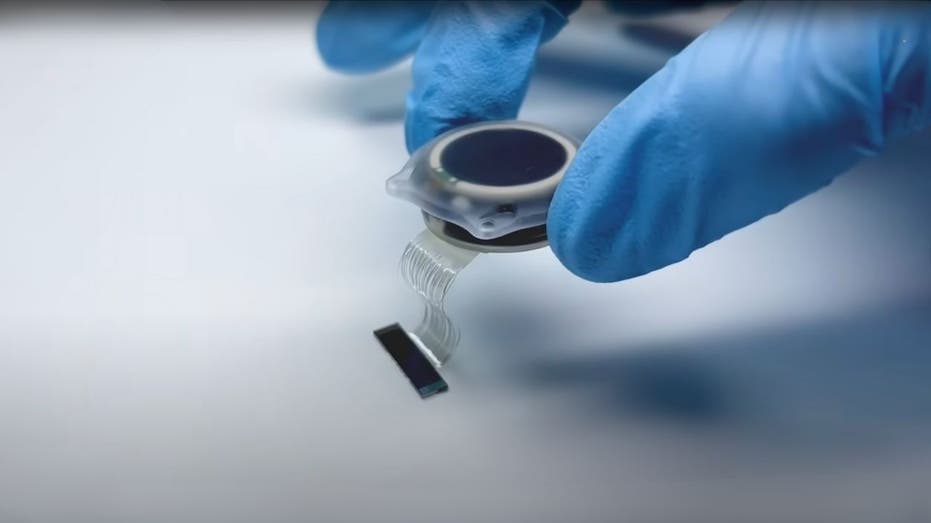Woman Reclaims Her Voice: Using Neuralink to Write with Her Mind After 20 Years

A Historic Breakthrough: Writing with the Power of Thought
For over two decades, Audrey Crews hadn’t been able to write her own name. That is, until recently. Thanks to cutting-edge brain-computer interface technology developed by Elon Musk’s Neuralink, Crews was able to spell out “Audrey” on a laptop screen using only her thoughts. Her achievement not only captivated the internet but also drew praise from Musk himself, marking a significant milestone in neural technology.
Understanding Neuralink’s Brain-Computer Interface
Neuralink’s innovative device is designed to read brain signals and translate them into digital commands. Crews, who lost all motor functions at age 16, now participates in Neuralink’s PRIME Study—an ongoing clinical trial exploring how brain implants can help restore communication and control for individuals with neurological impairments. Her implant is placed into her motor cortex, the brain area responsible for movement, allowing her to control a cursor and type using her thoughts alone.
The Surgical Procedure and Device Details
During the implantation, a neurosurgeon drilled a small hole into her skull and inserted 128 ultra-fine threads into her motor cortex. The device itself is roughly the size of a quarter, making it minimally invasive in comparison to traditional brain surgeries. While the chip does not restore physical movement, it grants Crews a form of digital independence—enabling her to communicate and interact with technology through mental commands.
A Personal Triumph and a Glimpse into the Future
Crews shared her excitement on social media, posting a photo of her handwritten signature on X (formerly Twitter), accompanied by the message: “I tried writing my name for the first time in 20 years. I’m working on it. Lol #Neuralink.” Her story highlights the profound impact this technology can have, providing a sense of autonomy to those with paralysis or severe motor disabilities.
Expressing her gratitude, she praised the medical team at the University of Miami Health Center, describing them as compassionate and supportive. Elon Musk responded publicly, emphasizing that many people are unaware of the possibilities neural interfaces can unlock, further fueling public interest.
The Broader Implications of Neuralink’s Technology
This viral moment underscores a larger vision: that brain-computer interfaces (BCIs) could revolutionize how humans interact with digital devices. Although still in experimental stages, Neuralink is working toward enabling thought-controlled control of computers, phones, and other gadgets—potentially transforming everyday life for millions.
Real People, Real Progress
Crews isn’t alone in experiencing these breakthroughs. Another participant, Nick Wray, who suffers from ALS, shared his positive progress shortly after activation of his neural implant. Wray expressed that he had not experienced such a high level of digital independence in years, viewing his participation as both a personal victory and a historic milestone.
“If having ALS is the cost of participating in this groundbreaking research, I gladly pay it,” he wrote, recognizing the immense potential of this technology to change lives.
Looking Ahead: The Future of Thought-Controlled Technology
These advancements go beyond simple tasks like writing a name. They hint at a future where humans can control smartphones, compose emails, or even play video games—entirely through brain signals. Neuralink’s progress signifies that this future is inching closer to reality.
Join the Journey: Opportunities and Ethical Questions
Neuralink is now inviting participants worldwide to contribute to its research. If you’re curious about the potential of brain-computer interfaces or want to help shape future innovations, this could be your chance. More information is available through their trial programs, offering a unique opportunity to be part of a technological revolution.
Would You Volunteer?
Crews’ story rewrites the boundaries of human capability, showing that with a tiny implant, women can control computers using only their thoughts. Her experience serves as both an inspiration and a prompt for reflection: are we ready for the age of mind-powered machines? Would you consider participating in such a trial, or do you feel it’s too early to trust this emerging technology? Share your thoughts with us.
Stay Informed and Prepared
For more insights into the future of technology, security, and innovation, subscribe to our free CyberGuy Report. Receive expert tips, urgent alerts, and exclusive deals directly to your inbox, along with access to our comprehensive Scam Survival Guide—available at no cost when you join our newsletter.
Copyright 2025 CyberGuy.com. All rights reserved.




